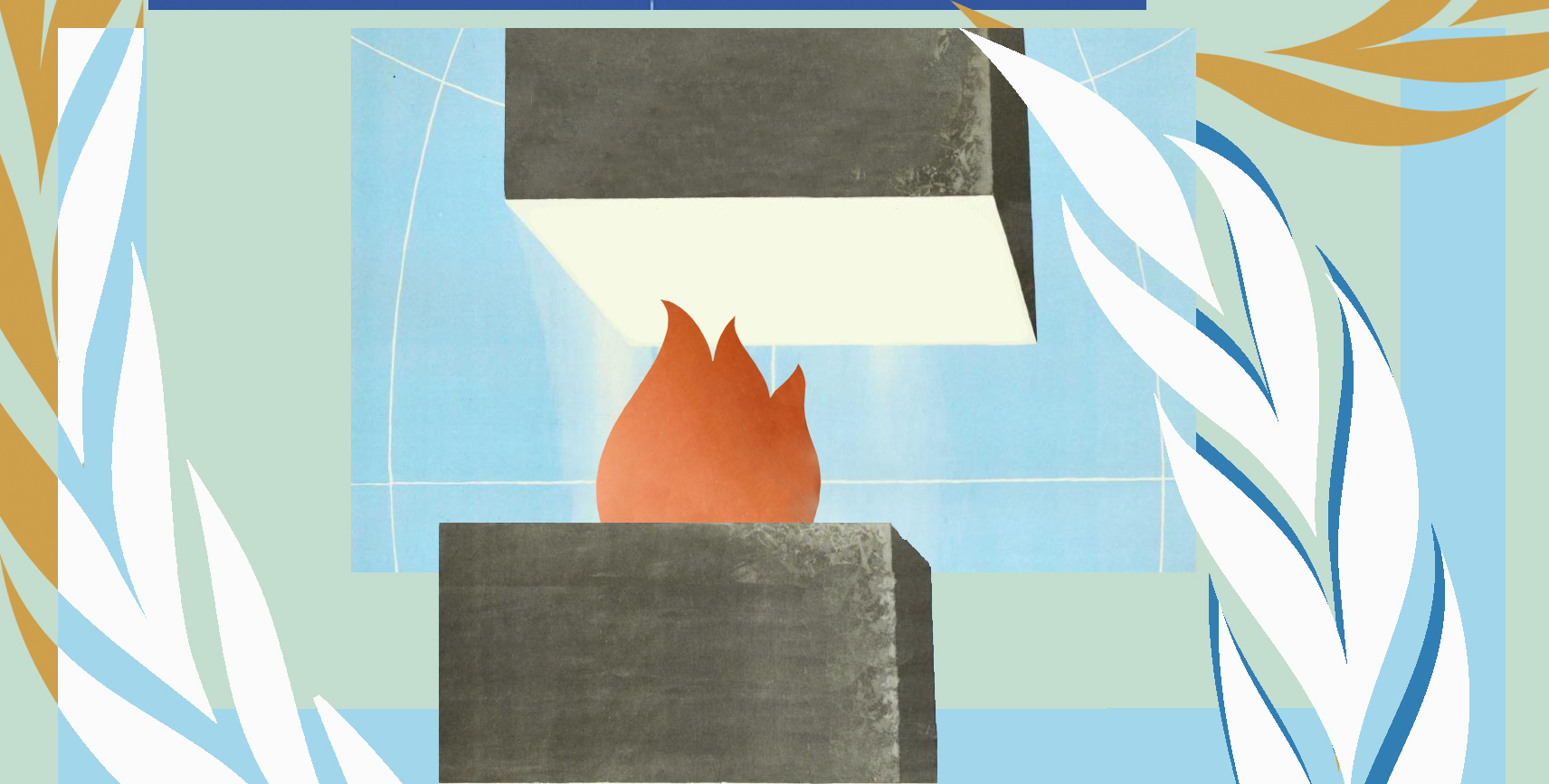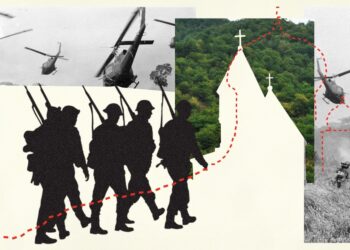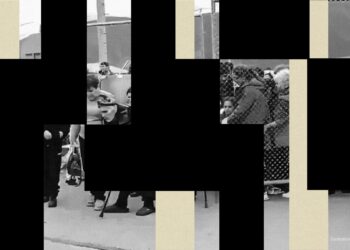
Listen to the article.
On November 12, 2024, the International Court of Justice (ICJ) delivered a significant ruling in the case concerning the application of the International Convention on the Elimination of All Forms of Racial Discrimination (CERD) between Armenia and Azerbaijan (Armenia v Azerbaijan). The Court dismissed Azerbaijan’s two preliminary objections to its jurisdiction, confirming that it has the authority to hear the case. This allows the ICJ to proceed to the merits stage, where it will examine the substance of the dispute—namely, the claims of racial discrimination under CERD.
This judgment reinforces the importance of CERD and the role of the ICJ in addressing disputes involving racial discrimination amidst the continuing humanitarian and human rights crisis affecting Armenians from Nagorno-Karabakh. The crisis, which began with the 2020 war, deteriorated with Azerbaijan’s prolonged and devastating blockade of the region and culminated in September 2023 with the ethnic cleansing of Armenians from their ancestral homes. It continues to unfold amid uncertainty regarding the prospects of upholding their rights as refugees and addressing the looming issues of statelessness and displacement.
Background of the Case
Armenia initiated proceedings against Azerbaijan at the ICJ on September 16, 2021, citing violations of CERD. The claims centered on alleged systemic discrimination, racial hatred, and violence against ethnic Armenians, particularly in the context of hostilities over Nagorno-Karabakh. Armenia argued that Azerbaijan’s actions constituted breaches of Articles 2, 4, and 5 of CERD.
These articles outline the core obligations of States to combat racial discrimination and ensure equality in rights and protections.
Article 2 requires States parties to condemn racial discrimination and take proactive measures to eliminate it in all forms. This includes ensuring that public authorities and institutions refrain from engaging in discriminatory practices, preventing individuals or organizations from promoting racial hatred, and revising national laws that perpetuate discrimination. Armenia claimed that Azerbaijan not only failed to meet these obligations but actively fostered anti-Armenian sentiment through state-supported policies and practices, including hate propaganda and systemic exclusion of ethnic Armenians.
Article 4 emphasizes the need for States to prohibit propaganda and organizations that incite racial hatred. It obliges States to criminalize the dissemination of ideas promoting racial superiority or hatred and to take measures against organizations or individuals that incite racial discrimination. Armenia argued that Azerbaijan’s rhetoric, including statements from high-ranking officials, educational materials, and public displays such as the “Military Trophies Park,” constituted clear violations of this article by fostering a pervasive culture of anti-Armenian animus.
Article 5 guarantees equality before the law and protection of civil, political, economic, social and cultural rights without discrimination. It underscores the importance of ensuring personal security, freedom of movement, and access to justice for all individuals, regardless of race or ethnicity. Armenia alleged that Azerbaijan systematically denied these rights to ethnic Armenians, citing instances of racially motivated killings, torture, arbitrary detention, and the destruction of Armenian cultural heritage. These actions, Armenia argued, represented a direct violation of the protections outlined in Article 5.
Armenia’s claim included an urgent request for provisional measures against Azerbaijan, which marked the beginning of a series of subsequent requests amid the rapidly deteriorating situation on the ground. In its initial Order dated December 7, 2021, the ICJ indicated four provisional measures for Azerbaijan, one for Armenia, and one directed at both parties, aiming to prevent further escalation and protect rights under the CERD.
As conditions in the region continued to worsen, Armenia sought modifications to the Court’s initial Order. On September 19, 2022, Armenia formally requested a modification, citing new developments, including Azerbaijan’s large-scale attack on Armenia earlier that month. This attack led to the deaths and alleged abuse of Armenian service members, injuries to civilians, and the capture of soldiers who were reportedly subjected to inhuman treatment, including violence, torture, and bodily harm. Armenia argued that these events represented a significant change in circumstances, warranting additional measures. However, in its October 12, 2022, Order, the Court found that the circumstances did not warrant a change. Later, on December 28, 2022, Armenia requested an additional provisional measure, urging the Court to compel Azerbaijan to lift its blockade of the Lachin Corridor and ensure free, unimpeded movement. The blockade, initiated by the Azerbaijani government on December 12, 2022, under the pretense of environmental protests, effectively cut off Artsakh, exacerbating the humanitarian crisis in the region. Responding to this plea, the ICJ issued an Order on February 22, 2023, directing Azerbaijan to take necessary measures to ensure safe and unhindered passage.
Armenia returned to the Court on May 15, 2023, requesting a modification of the February 2023 Order, citing continuing impediments to movement. Armenia argued that the so-called protests were no longer taking place and claimed that the disruption was now caused by Azerbaijan establishing one or more checkpoints. However, on July 6, 2023, the Court declined the request, finding that these circumstances did not constitute a significant change in the situation to justify modifying the February 2023 Order.
The situation on the ground, however, continued to deteriorate, compelling Armenia to file another urgent request for provisional measures on September 28, 2023. This request followed Azerbaijan’s full-scale military assault on Nagorno-Karabakh, launched on September 19, 2023. The assault led to the mass displacement of over 100,000 ethnic Armenians to Armenia.
In response, by its Order dated November 17, 2023, the ICJ directed Azerbaijan to take several urgent measures under CERD. These included ensuring the safe, unimpeded return of those forcibly displaced, protecting those who remained in or returned to Nagorno-Karabakh, and safeguarding critical identity, registration, and property records. Azerbaijan was also ordered to report to the Court on its compliance with these measures, underscoring the ICJ’s role in addressing the profound humanitarian crisis and the rights violations stemming from the conflict.
When it comes to the merits, in addition to requesting declarations of breaches under CERD, Armenia sought the cessation of all ongoing violations, demanding that Azerbaijan immediately halt discriminatory practices against ethnic Armenians and comply fully with its obligations under the Convention. Armenia also requested assurances and guarantees of non-repetition to prevent future violations, emphasizing the need for safeguards against racial discrimination.
Armenia further sought restitution, including the safe return of displaced Armenians, restoration of cultural and religious sites, protection of Armenian heritage, and compensation for the harm caused, covering both material and moral damages.
With the conclusion of the preliminary objections phase, the case now proceeds to the merits phase. The relief sought by Armenia will be fully examined and decided upon in the Court’s final judgment.
What Is a Preliminary Objection?
Preliminary objections serve as a mechanism for a party to contest the Court’s authority to hear a case, without addressing the dispute’s substance. These objections often challenge the jurisdiction of the Court or the admissibility of the case. A ruling on preliminary objections, therefore, is distinct from a judgment on the merits. While the latter determines whether a party has violated international law based on evidence and legal arguments, a decision on preliminary objections solely establishes whether the Court has the legal authority to consider the case further.
The ICJ derives its authority to rule on its jurisdiction from the principle of compétence de la compétence, enshrined in Article 36(6) of its Statute. This principle empowers the Court to decide whether it has jurisdiction to adjudicate a dispute. In doing so, the Court does not delve into the substantive issues of the case. Instead, it evaluates whether the claims presented by the applicant state a dispute that falls within the scope of the relevant treaty or legal instrument. The determination at this stage concerns whether the alleged facts, if proven, can constitute a violation of the obligations under the treaty invoked.
In this case, the ICJ clarified the scope of its task in addressing Azerbaijan’s preliminary objections. The Court reiterated that:
“It must be ascertained whether the actions or omissions of the respondent complained of by the applicant fall within the scope of the treaty allegedly violated, in other words, whether the facts at issue, if established, are capable of constituting violations of obligations under the treaty.” (para. 69).
Therefore, the Court’s rejection of preliminary objections does not mean it has ruled on the merits; rather, it has concluded that it has the authority to proceed to consider the case substantively.
Azerbaijan’s Preliminary Objections
Azerbaijan raised two preliminary objections to the ICJ’s jurisdiction: (1) the precondition of negotiations under Article 22 of CERD had not been satisfied, and (2) certain Armenian claims fell outside the scope of CERD (jurisdiction ratione materiae).
Azerbaijan’s First Objection: The Precondition of Negotiation (paras. 38-59)
Azerbaijan argued that Armenia had not fulfilled the precondition of attempting to resolve the dispute through negotiations as required by Article 22 of CERD. It contended that the exchanges between the parties were procedural and lacked substantive engagement on CERD-related issues.
Azerbaijan further argued that substantive negotiations were in their early stages and had not reached an impasse by the time Armenia filed its Application and the first Request for provisional measures. Azerbaijan maintained that the limited time spent on substantive discussions demonstrated that the precondition of negotiation had not been met.
Armenia’s Counterarguments
Armenia asserted that it had made genuine attempts to negotiate, as evidenced by correspondence and meetings from November 2020 to September 2021. Armenia asserted that Azerbaijan categorically rejected its claims from the outset and remained unyielding throughout the negotiations, despite claiming to be open to a settlement. According to Armenia, these rejections, coupled with Azerbaijan’s inflexible stance, rendered further discussions futile. On the scope of CERD, Armenia emphasized that racial discrimination remains actionable under CERD even in the context of armed conflict, as the treaty applies universally and without derogation.
Armenia concluded by noting that the Court had previously deemed preconditions of negotiation satisfied in cases involving less extensive exchanges, reinforcing its position that it had met the requirements under Article 22 of CERD (paras. 45-49).
The Court’s Position
The Court highlighted that, under Article 22 of CERD, countries must make genuine efforts to negotiate before bringing a dispute before the ICJ (para. 141; para. 106). This means the negotiations must directly address the core issue of the dispute and focus on the obligations outlined in the Convention (para. 161).
In assessing the actions of the Parties, the Court determined that Armenia made a genuine attempt to engage in discussions with Azerbaijan to resolve the dispute, as required by Article 22 of CERD. The Court also found that by the time Armenia filed its Application, negotiations had become futile. It noted that the requirement to demonstrate a genuine attempt to negotiate does not necessitate that the parties reach an agreement (para. 57).
The Court observed that the positions of Armenia and Azerbaijan remained largely unchanged from the end of 2020 through September 2021, indicating that negotiations had reached a deadlock. Accordingly, it rejected Azerbaijan’s first preliminary objection (para. 58).
Azerbaijan’s Second Objection: Jurisdiction Ratione Materiae (paras. 60-68)
In its second preliminary objection, Azerbaijan claimed that Armenia’s allegations concerning murder, torture, inhumane treatment, as well as practices of arbitrary detention and enforced disappearance of ethnic Armenians during the 2020 Conflict and subsequent hostilities were governed by international humanitarian law, not CERD. Consequently, the Court lacked subject matter jurisdiction.
Azerbaijan contended that these actions reflected general animosity between nationals of two states engaged in armed conflict, rather than hostility specifically based on the ethnic origin of the victims. Accordingly, Azerbaijan argued that “the claims in question are not capable of falling within the provisions of CERD.” (para. 63).
Armenia’s Counterarguments
While acknowledging that not all violations of international humanitarian law during armed conflict constitute racial discrimination, Armenia argued that the same acts can breach both CERD and international humanitarian law. It framed Azerbaijan’s actions as part of a broader context of “decades-long Armenophobic hate,” allegedly marked by systemic animosity and explicit racism.
Armenia concluded that Azerbaijan’s second preliminary objection should be rejected, asserting that any questions regarding the evidence are not exclusively preliminary and should be addressed at the merits stage. (paras. 66-68).
The Court’s Position
Turning to the applicability of CERD in situations of armed conflict, the Court reaffirmed that the prohibition of racial discrimination, a cornerstone of international human rights law, is equally integral to international humanitarian law. It emphasized that “the protection offered by human rights conventions does not cease in case of armed conflict.” CERD contains no provisions limiting its applicability during armed conflict or permitting derogation under such circumstances (para. 76).
The Court concluded that acts such as murder, torture, inhuman treatment, arbitrary detention, and enforced disappearance, when committed based on national or ethnic origin, can violate obligations under CERD, even in the context of armed conflict. Accordingly, the Court must assess whether the specific acts alleged by Armenia demonstrate discriminatory treatment targeting individuals of Armenian national or ethnic origin (para. 78).
Turning to the alleged racially motivated violations by Azerbaijan, the Court concluded that the acts alleged by Armenia are capable of constituting discrimination against members of armed forces and civilians “based on” their Armenian national or ethnic origin. These acts were deemed capable of interfering with rights protected under Articles 2 (1), 4 (a), and 5 (b) of CERD.
The Court acknowledged that generalized “anti-Armenian sentiment,” if substantiated, could serve to demonstrate that specific acts were “based on” prohibited grounds under Article 1(1) of CERD. The Court held that racially motivated murder, torture, and inhuman treatment of ethnic Armenians fell within the scope of CERD (para. 95).
Finally, the Court determined that the alleged practices of arbitrary detention and enforced disappearance of ethnic Armenian civilians by Azerbaijan can constitute discriminatory treatment “based on” Armenian national or ethnic origin. Such acts, if proven, could be considered to interfere with rights protected under Article 2 and Article 5 (a) of CERD. This finding extends to the treatment of ethnic Armenians residing in Nagorno-Karabakh (paras. 102-103).
As a result, the Court dismissed both of Azerbaijan’s preliminary objections and upheld its jurisdiction, based on Article 22 of CERD, ensuring that the dispute will proceed to be considered on its merits before the ICJ.
Judge Yusuf’s Dissenting Opinion
Judge Yusuf dissented from the Court’s decision to reject Azerbaijan’s second preliminary objection. He argued that CERD should not be used as a broad jurisdictional tool and that the Court missed an opportunity to uphold the integrity of the Convention by addressing only claims genuinely falling within its scope.
Judge Yusuf emphasized that the key issue was not the general applicability of CERD in armed conflicts but whether the specific conduct alleged by Armenia conformed to the requirements of racial discrimination as defined in Article 1(1) of CERD. He underscored that for an act to constitute racial discrimination under CERD, it must (a) involve differentiation based on prohibited grounds such as ethnic or national origin, and (b) have the purpose or effect of impairing the human rights of an individual or group in a way that places them at a disadvantage compared to others. In his view, the Court failed to sufficiently analyze Armenia’s claims against these requirements, particularly the comparator standard necessary to establish nullification or impairment of rights.
Judge Yusuf warned that the decision risked opening the Convention to claims unrelated to its provisions. He expressed concern that the judgment might encourage attempts to bring cases before the ICJ without proper jurisdictional grounds, diminishing the legitimacy of CERD.
Response to Judge Yusuf’s Concerns
While Judge Yusuf expressed concerns about the potential misuse of CERD as a jurisdictional “catch-all,” the Court’s judgment clearly demonstrated that Armenia’s claims are grounded in CERD’s substantive obligations. The Court conducted a robust analysis of Article 1(1) of CERD and applied its established standards to conclude that the alleged acts, if proven, fall within CERD’s scope. Therefore, his argument that the Court failed to apply the comparator standard or meet CERD’s requirements lacks merit at this procedural stage.
Judge ad hoc Koroma’s Dissenting Opinion
A judge ad hoc is a judge appointed to the ICJ by a party to a case where there is no sitting judge of that party’s nationality on the bench. Thus, Judge ad hoc Koroma was appointed by Azerbaijan. He argued that the Court should have found the Application inadmissible, asserting that the subject matter of the dispute did not align with the jurisdictional basis provided by Article 22 of CERD.
Judge Koroma argued that the essence of Armenia’s claims revolved around the territorial status of Nagorno-Karabakh, which has been the site of long-standing armed hostilities between the parties. In his view, this territorial dispute cannot be recharacterized as a matter concerning the interpretation or application of CERD.
Judge Koroma also cautioned that the majority risked premature conclusions about the case by framing the issues in terms of accusations such as “ethnic cleansing” and “discriminatory murder,” which belong to the merits phase and require a more detailed examination of evidence.
In conclusion, Judge Koroma believed that the Court should have upheld Azerbaijan’s preliminary objections and declined jurisdiction on solid jurisprudential grounds, noting that the 30 years of limited diplomatic contact between the parties made it difficult to satisfy the procedural and substantive preconditions of CERD. In his view, the Application was inadmissible under the relevant procedural framework.
Response to Judge Koroma’s Concerns
Judge Koroma’s assertion that the case revolves around a territorial dispute, not racial discrimination, mischaracterizes Armenia’s claims. The Court carefully distinguished the legal basis of Armenia’s application under CERD from broader territorial or political issues. Moreover, the Court reaffirmed that CERD applies to acts of racial discrimination even during armed conflict, supporting its jurisdiction to adjudicate these claims. His concerns about procedural and substantive preconditions were adequately addressed in the Court’s thorough analysis.
Conclusion
The ICJ’s judgment marks a pivotal moment in the Armenia v. Azerbaijan case. While the case primarily revolves around the state’s infringed rights, the circumstances of the dispute inevitably bring individual justice and upholding victims’ rights to the forefront. This becomes even more pronounced when considering Armenia’s requests for remedies, including reparations and compensation for the harm caused.
The professional and meticulous work of Armenia’s legal team deserves recognition. Their adherence to the procedural requirements—particularly ensuring a duly conducted negotiation phase—avoided a critical pitfall Georgia encountered in its CERD case against Russia. However, the true test lies ahead in the merits phase, where Armenia must substantiate its claims with compelling evidence and legal argumentation.
The ICJ’s decision also emphasizes that CERD’s anti-discrimination protections apply even during armed conflicts, complementing international humanitarian law. This reinforces the principle that states remain bound by their obligations to prevent and address racial discrimination, regardless of wartime conditions. By affirming that Armenia’s allegations are plausible under CERD, the Court has paved the way for a deeper examination of systemic discrimination and violence against ethnic Armenians.
At the same time, the judgment may exacerbate tensions between Armenia and Azerbaijan, as Armenia now can present detailed allegations of egregious violations. Azerbaijan’s maximalist and uncompromising stance underscores the importance of Armenia maintaining a steadfast legal strategy. Any retreat from the legal path could harm Armenia’s international standing and, by extension, the individuals whose rights have been violated. Armenia must now prepare diligently for the complexities of the merits phase, ensuring that its claims are substantiated and its commitment to justice remains unwavering.
The parallel judgment addressing Armenia’s preliminary objections against Azerbaijan’s claims will be analyzed in detail in the second part of this article.
Also see
Appropriation of Armenian Cultural Heritage of Artsakh
The 2020 war and 2023 military operations in Artsakh have left Armenian cultural heritage vulnerable to destruction and appropriation. Azerbaijan's reclassification of Armenian sites aims to erase Armenian identity, falsify history, and legitimize territorial claims through cultural expropriation.
Read moreTo War or Not to War? Russia’s Coaxing and Aliyev’s Dilemma
If Azerbaijan’s Aliyev attacks Armenia, it risks Armenia's survival but would be self-sabotage for Baku. Such aggression would push Aliyev into Russia’s revisionist orbit, thereby undermining his external geopolitical patronage system—a key factor for his regime's survival. Anna Ohanyan explains.
Read moreFour Years After the Nagorno-Karabakh War: Armenia’s Legal Pursuit for Justice and Accountability
Since the 2020 Nagorno-Karabakh War, Armenia has pivoted toward utilizing international legal institutions to address the conflict's aftermath with Azerbaijan. This article offers a comprehensive overview of Armenia’s legal efforts on the global stage.
Read moreWhat Happened to Nagorno-Karabakh and Why It Matters
A critical examination of the developments in Artsakh following Azerbaijan’s attack in September 2023 that led to the ethnic cleansing of the entire Armenian population and the dismantlement of the Republic, focusing on the region's unresolved status under international law.
Read moreGenocide 2.0: Old Threats, New Delivery?
Davit Khachatryan focuses on the changing dynamics surrounding genocide, particularly in light of modern warfare tactics and weaponry, emphasizing the importance for Armenia to be vigilant in response to emerging threats.
Read moreEthnic Cleansing, Genocide or Displacement?
This article explores the most accurate term to describe the de-Armenization of Nagorno-Karabakh by comparing various perspectives and examining the legal and political applicability of these terms.
Read moreHow Azerbaijan Deceives and Harasses the International Community
Azerbaijan has been using military and diplomatic coercion to achieve its maximalist and expansionist objectives, employing wide-ranging tools of hybrid war while also deceiving and harassing international actors. Sossi Tatikyan explains.
Read morePolitics
How Far Has Armenia Come in Meeting Paris Climate Goals?
Seven years after Armenia ratified the Paris Agreement on climate change, Gor Samvel reviews measures Armenia has taken to implement key provisions of the treaty, focusing on mitigation, adaptation, transparency and compliance, highlighting achievements and areas in need of improvement.
Read moreRevisiting Turkey’s Role in the 2020 Nagorno-Karabakh War
Evidence suggests Turkey’s involvement in the 2020 Nagorno-Karabakh War was pivotal, reshaping Azerbaijan’s military capabilities. Hovhannes Nazaretyan examines Turkey’s military assistance, including advisory support, deployment of Syrian mercenaries, and Bayraktar TB2 drones, revealing Turkey's covert yet substantial role in the conflict.
Read morePolicy of Intimidation: How Azerbaijan Tricked and Treated Ahead of COP29
Ahead of COP29, Azerbaijan has intensified its repression of dissent, arresting activists and silencing critics to project an image of peace. Rasmus Canbäck examines how Azerbaijan’s “Policy of Intimidation” serves as a tool to stifle internal opposition and manipulate international narratives.
Read moreTransformations in Western Asia May Begin From Tehran
As the Middle East stands at the crossroads of a potential clash between regional powers, this article explores Iran's complex relationships with Hezbollah, Israel, and Azerbaijan and considers how these dynamics may reshape stability and power across Western Asia.
Read more












